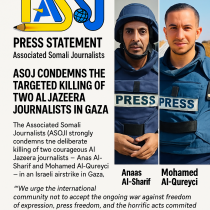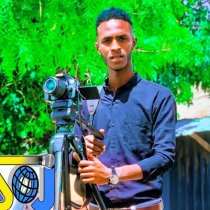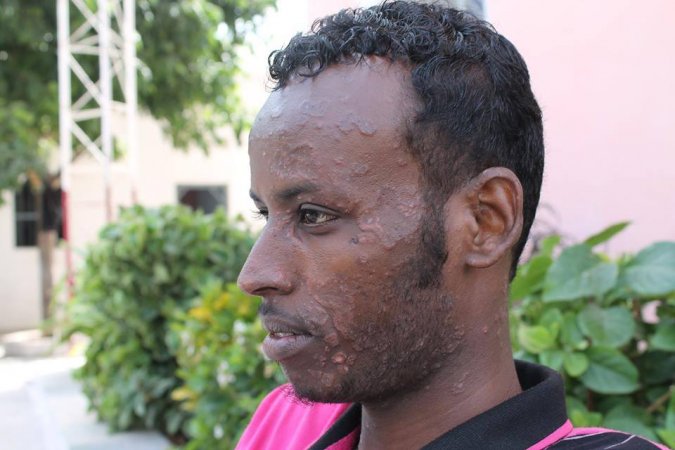
Backsliders A World Press Freedom Day report from CPJ:
New York, May 2, 2007 —Three nations in sub-Saharan Africa are among the places worldwide where press freedom has deteriorated the most over the last five years, a new analysis by the Committee to Protect Journalists has found. Ethiopia , where the government launched a massive crackdown on the private press by shutting newspapers and jailing editors, leads CPJ's dishonor roll. The African nations of the Gambia and the Democratic Republic of Congo join Russia and Cuba among the world's worst “backsliders” on press freedom.
The backsliders reflect a mixture of relatively open countries that have turned increasingly repressive and traditionally restrictive nations where press conditions, remarkably, have worsened. Nations such as Thailand and Morocco have been considered press freedom leaders in their regions but have charted sharp declines over the past five years. Other countries such as Cuba have long had poor records but have ratcheted up press restrictions through widespread imprisonments, expulsions, and harassment.
“The behavior of all of these countries is deeply troubling, but the rapid retreats in nations where the media have thrived demonstrate just how easily the fundamental right to press freedom can be taken away,” Simon added.
To determine trends in press conditions, CPJ analyzed case data worldwide for the years 2002 through 2007. Its staff judged conditions in seven categories: government censorship, judicial harassment, criminal libel prosecutions, journalist deaths, physical attacks on the press, journalist imprisonments, and threats against the press. CPJ staff excluded from consideration major conflict zones such as Iraq and Somalia, which lack conventional governance and newsgathering.
• Authorities in several countries are silencing critical coverage by imprisoning journalists. Cuba and Ethiopia became two of the world's leading jailers of journalists in the past five years. Morocco, often cited as a regional model for press freedom, is now tied with Tunisia for the dubious distinction of sentencing the most journalists to prison in the Arab world.
• Violent attacks are going unpunished in many of these countries. In Pakistan, eight journalists have been slain in the last five years, but arrests and convictions have been won in only one case. In Russia, 11 journalists have been murdered in the last five years, but no case has been solved.
• Judicial harassment is being used increasingly in many of these nations. In Egypt, 85 criminal cases were launched against journalists between 2004 and 2006. In DRC and Azerbaijan, criminal defamation prosecutions are rising. And in Morocco, politically motivated lawsuits have effectively sidelined a number of the country's most outspoken editors.
• Censorship orders and restrictive legislation are being used in several nations. In Thailand, the new military junta issued broad censorship orders for broadcast outlets. In the Gambia, authorities have shut down a leading independent newspaper. And in Russia, the president signed a law equating critical coverage with “extremism.”
• Escalating government attacks in Morocco and Egypt have coincided with increasing assertiveness on the part of independent publications.
Here are CPJ's “Top 10 Backsliders.” The figures cited are annual unless noted.
Key fact : Only a handful of private newspapers now publish, all under intense self-censorship.
Key fact: Eleven journalists jailed for extended periods in 2006.
Key fact: New law defines “extremism” as including “public slander toward figures fulfilling state duties.”
Key fact: Leaders of press freedom group Journaliste en Danger forced into hiding in 2006.
Key fact: Cases of government harassment increase in the past year.
Key fact: Government's own Directorate for Inter-Services Intelligence is suspected in some abductions.
Key fact: Egyptian Organization for Human Rights says 85 criminal cases launched against press between 2004 and 2006.
Key fact: Editor Ali Lmrabet barred from profession for 10 years.
Key fact: New constitution is being drafted. Press guarantees uncertain.
To learn more about this project, hear an audio report from CPJ Deputy Director Robert Mahoney. To learn more about these backsliding countries, read CPJ's annual report on press freedom , Attacks on the Press in 2006.
CPJ is a New York–based, independent, nonprofit organization that works to safeguard press freedom worldwide. For more information, visit www.cpj.org .

 0
0 


























Backsliders A World Press Freedom Day report from CPJ:
The 10 countries where press freedom has most deteriorated